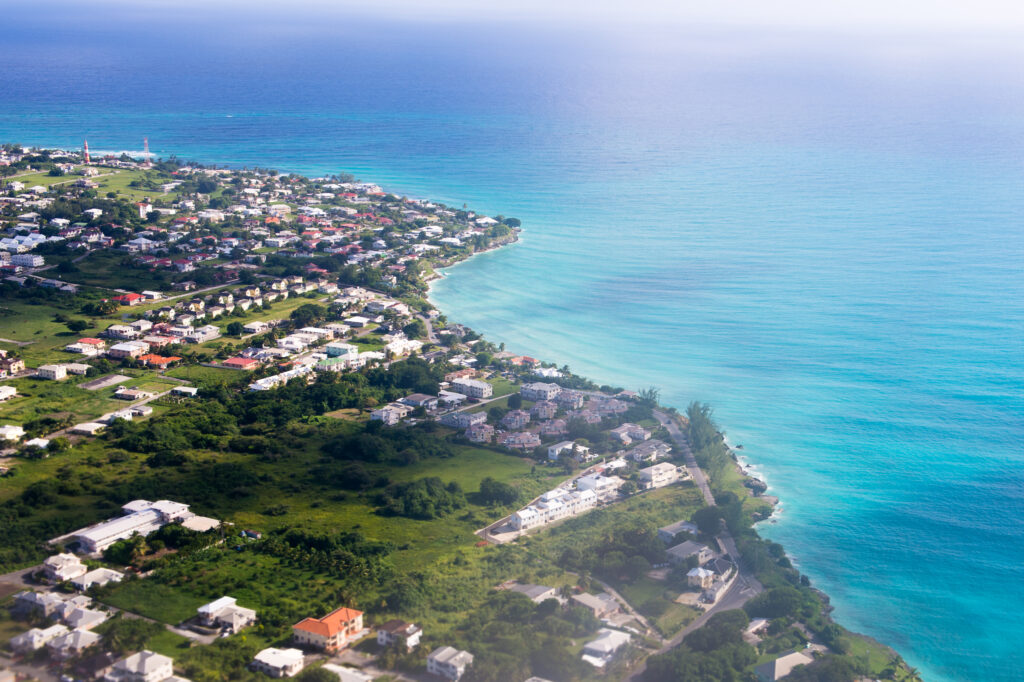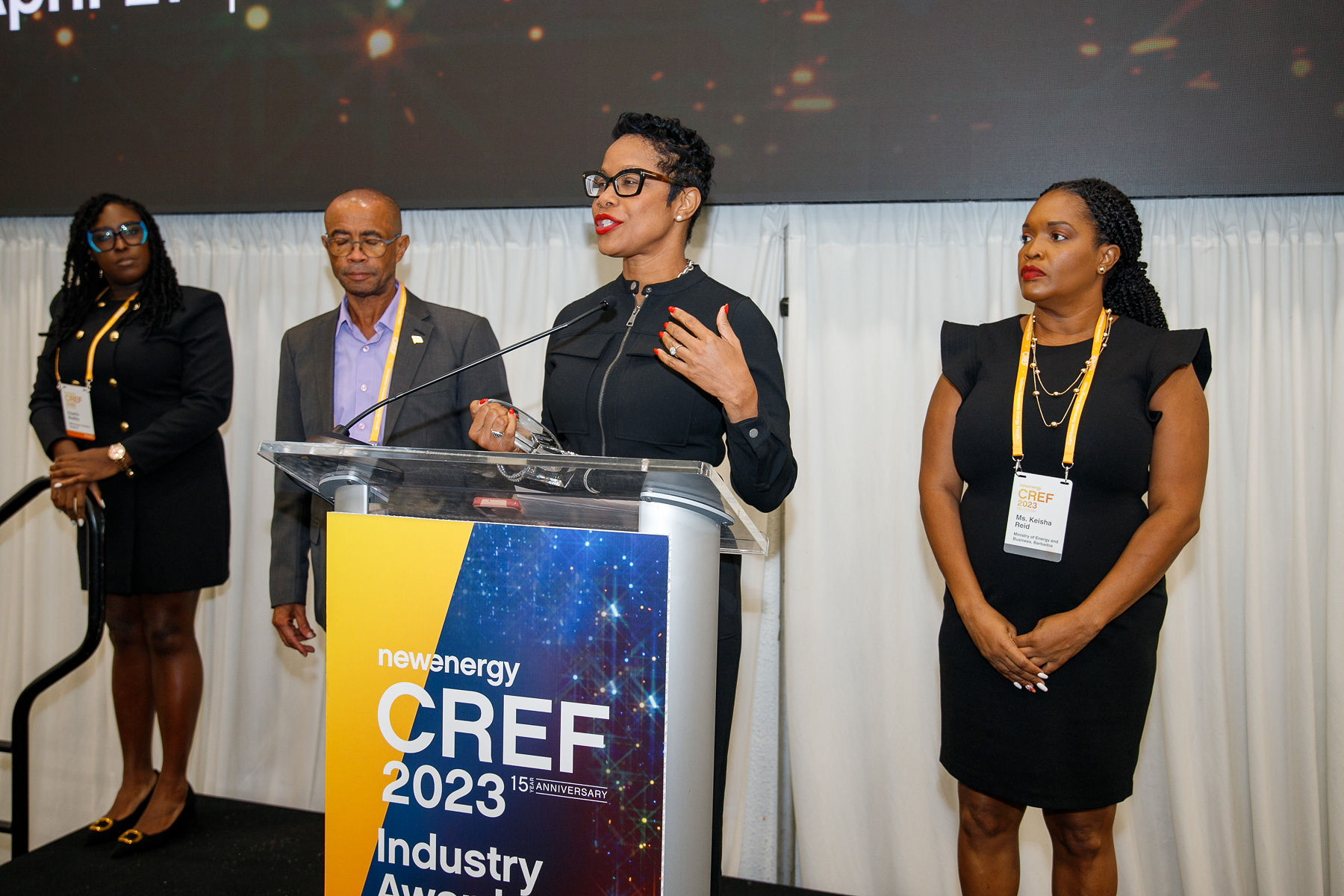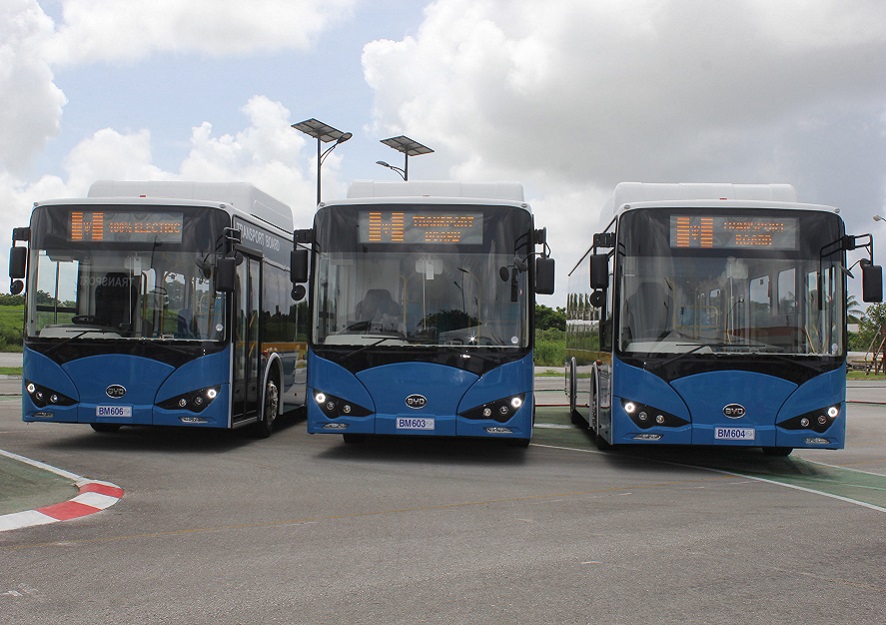

In a recent interview with the Energy and Climate Partnership of the Americas (ECPA), Minister of Energy and Business Lisa Cummins described her country’s approach as “the democratization of access to renewable energy.” The central principle, she said, is that the nation’s energy-producing natural resources should benefit the average person—not just big business.
That principle underlies the Householders’ Right to Renewable Energy Policy, implemented last year. The initiative, which encourages homeowners to install solar photovoltaic (PV) panels on their roofs, won an award for Best Climate Policy/Program at the 15th Caribbean Renewable Energy Forum (CREF), held recently in Miami.
Cummins, who accepted the award on behalf of Barbados, explained in the interview that the initiative allows homeowners to produce up to 10 kilowatts (kW) of solar energy without having to go through a regulatory approval process or get a license. Through a simple online application, people can reserve their right to install the solar panels and then go to a commercial bank to obtain financing.

Minister of Energy and Business Lisa Cummins accepts an award at CREF for an initiative that encourages homeowners to install rooftop solar.
Once the panels are in operation and connected to the grid, any excess electricity produced beyond the homeowner’s own consumption is sold to the local utility, the Barbados Light & Power Co. The proceeds go directly toward the bank loan until the system is paid for.
“You never have to pay a penny for those panels,” Cummins said.
From a financial standpoint, the arrangement gives homeowners the opportunity to get some relief from high electric bills. Beyond that, Cummins said, the goal is to bring about “a change in the narrative” so that people can start to see renewable energy as part of a broader lifestyle change.
The response to the solar initiative has been overwhelming, she said. The government had hoped the effort would attract 200 people in the first year and instead, the number quickly topped 3,000. In fact, the process has now slowed down, Cummins said, “not because there is a waning of interest but because you have concerns about the length of time it is taking for the utility to onboard customers onto the grid.”

Solar panels cover the roof of a city building in the business district of Bridgetown, Barbados.
In other words, she said, many homeowners have reserved the right to install the panels but are waiting to do so until the backlog has been cleared; otherwise, they would have to start repaying the loan before the panels are producing electricity and earning money. She added that the government is working with the utility to iron out grid connection issues.
The interest in solar is perhaps not surprising in a country led by one of the most prominent voices on climate change and its dire consequences for small island developing states. Prime Minister Mia Mottley has advocated on the global stage for more effective mitigation, adaptation, and finance mechanisms and policies to respond to the climate crisis.
“It’s a strong message globally, but it absolutely also resonates locally,” Cummins said.
Barbados has set high ambitions for itself at the national level, including a goal to produce 100% of its electricity from renewables by 2030. It also aims to eliminate the use of diesel and gasoline for local transport. Today, Barbados has 49 electric buses in operation and another 20 on order, according to Cummins.

Barbados has 49 electric buses in operation and more on order.
In the past few years, the country has also been implementing a comprehensive program known as Roofs to Reefs, aimed at making the country more sustainable and resilient to climate change.
“Everything from the air up on top of the roofs all the way down to the reefs is covered under our sustainability agenda,” Cummins said. She noted that Barbados has been a regional leader in thinking about the sustainable use of ocean resources—a concept known as the “blue economy”—and the role of the ocean as a carbon sink.
This is especially relevant in an island nation with a limited land area—just 430 square kilometers (166 square miles) in the case of Barbados.
“We are a small island developing state,” Cummins said, “but that small island developing state has an ocean space more than 400 times greater than its land space.”
That makes offshore wind development a possibility in the future, she said, adding that the country is also looking at developing an onshore wind project with a capacity of 30 megawatts (MW). Another renewable energy project under discussion would combine hydrogen fuel cells and solar PV, she said.

The Pavana Energy Limited Wind Farm, located at Ashford Dairy in St. John, Barbados, was connected to the grid this year, becoming the first wind farm in Barbados. Its four turbines have a total capacity of 1 MW.
Given the level and pace of activity on the renewable energy front, she said, the Barbados National Energy Plan—developed in 2019—is already due for an update, as is the country’s Integrated Resources and Resilience Plan.
One urgent issue that must be addressed is the need for energy storage, to provide more stability to the grid and allow for solar power to be tapped when the sun is not shining. In fact, Cummins said, Barbados needs close to 100 MW of storage by the end of this year.
“The demand has been so great, the interest and the investment climate has been so aggressive, that we now absolutely must have storage,” she said. That is a challenge for a small country, she said, especially at a time when costs for energy storage are high globally and wait times are long. She likened the situation to the difficulties small countries had in trying to procure vaccines at the height of the COVID-19 pandemic.
Cummins, whose portfolio includes business, stressed that it is important to get the private sector involved in different aspects of the energy transition, such as in creating support services for renewable energy. She said her ministry is also working with businesses to help them transition to natural gas as a clean energy bridge and phase out other fossil fuels.
Meanwhile, Barbados could end up becoming a natural gas producer itself, as plans are underway for a new bid round for offshore exploration. In a speech in March on the 2023-2024 budget, Prime Minister Mottley said that Barbados cannot ignore its natural gas resources, which she said will be “a means of propelling us through the production of hydrogen and other things.”
“Unless, of course, there are countries or a country willing to pay us to keep our natural gas in the seabed,” Mottley said. “If that is the case, come forward and we will talk.”
 View Map
View Map